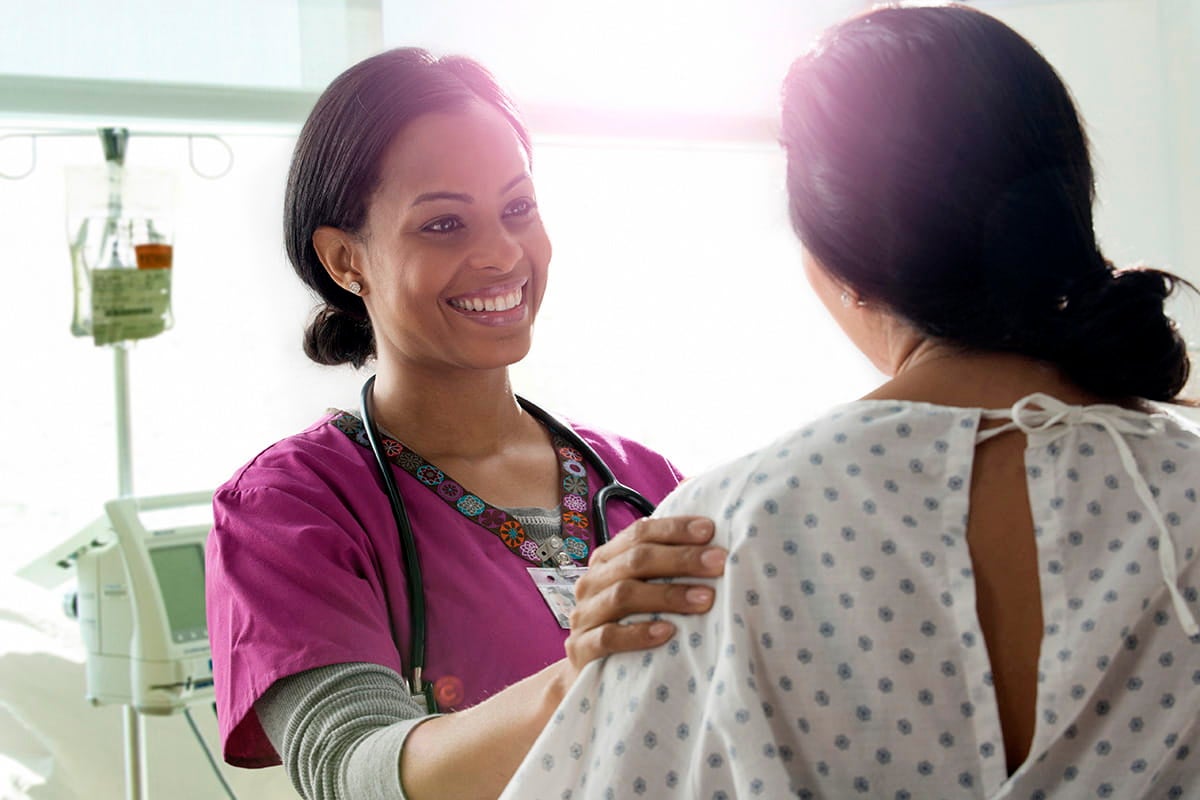
Personalized breast screening in Waco
-
What is a mammogram?
A mammogram is a breast health screening that uses an X-ray exam to check your breast health. A mammogram can help find problems with your breasts, such as cysts or cancer.
-
What age should women get a mammogram?
Start a conversation with your doctor to find out when you should begin having yearly breast screenings. We recommend women get a mammogram every year, beginning at age 40, but women who have a family history or an increased risk of breast cancer may need to have a mammogram sooner. Most insurance providers cover a mammogram each year. Check with your insurance provider for more details on your coverage.
-
What happens during a mammogram?
You will need to undress from the waist up and wear a gown. The technologist will position your breast on a flat plate on the mammography machine and then each of your breasts will be compressed slowly, one at a time. Your breasts will be repositioned several times to capture X-ray images from different angles for the clearest, most complete views of each breast.
-
How long does a mammogram take?
Your time is important, so we make getting a mammogram as convenient as possible. The entire procedure is about 20 minutes. The actual compression of each breast takes only a few seconds.
-
Do mammograms hurt?
Some women find the pressure of the plates on your breasts to be uncomfortable. Timing your mammogram when your breasts are not tender is important. In premenopausal women, this is usually one week after your menstrual period. If you experience discomfort or pain, ask your technologist to reposition your breast. Remember that each X-ray takes just a few moments and could help save your life.
-
How do I prepare for a mammogram?
Do not use deodorant, powder or lotions on the day of your mammogram. We also recommended wearing a top that is easy to remove, since you will be asked to undress from the waist up and wear a gown.
-
How quickly will I know my results?
After your mammogram, a radiologist will review the images and send a report to your doctor. You typically get your results around one week after your mammogram.
-
What if something is detected during my mammogram?
If you receive an abnormal result, follow-up testing will be needed. You may also be referred to a breast care specialist or a surgeon at Ascension Providence who specializes in diagnosing breast problems.
-
Is financial assistance and support available?
Our financial counseling team is here to listen to your concerns and work with you to help find resources and financial assistance programs to meet your needs. Your care team can also connect you to a financial counselor.
Schedule a screening today
At Ascension Providence, our care teams are ready to answer any questions you may have about mammograms and other screenings. If you need more care or advanced treatment options, you are connected to a compassionate care team that will explain procedures and walk you through every step of your care.